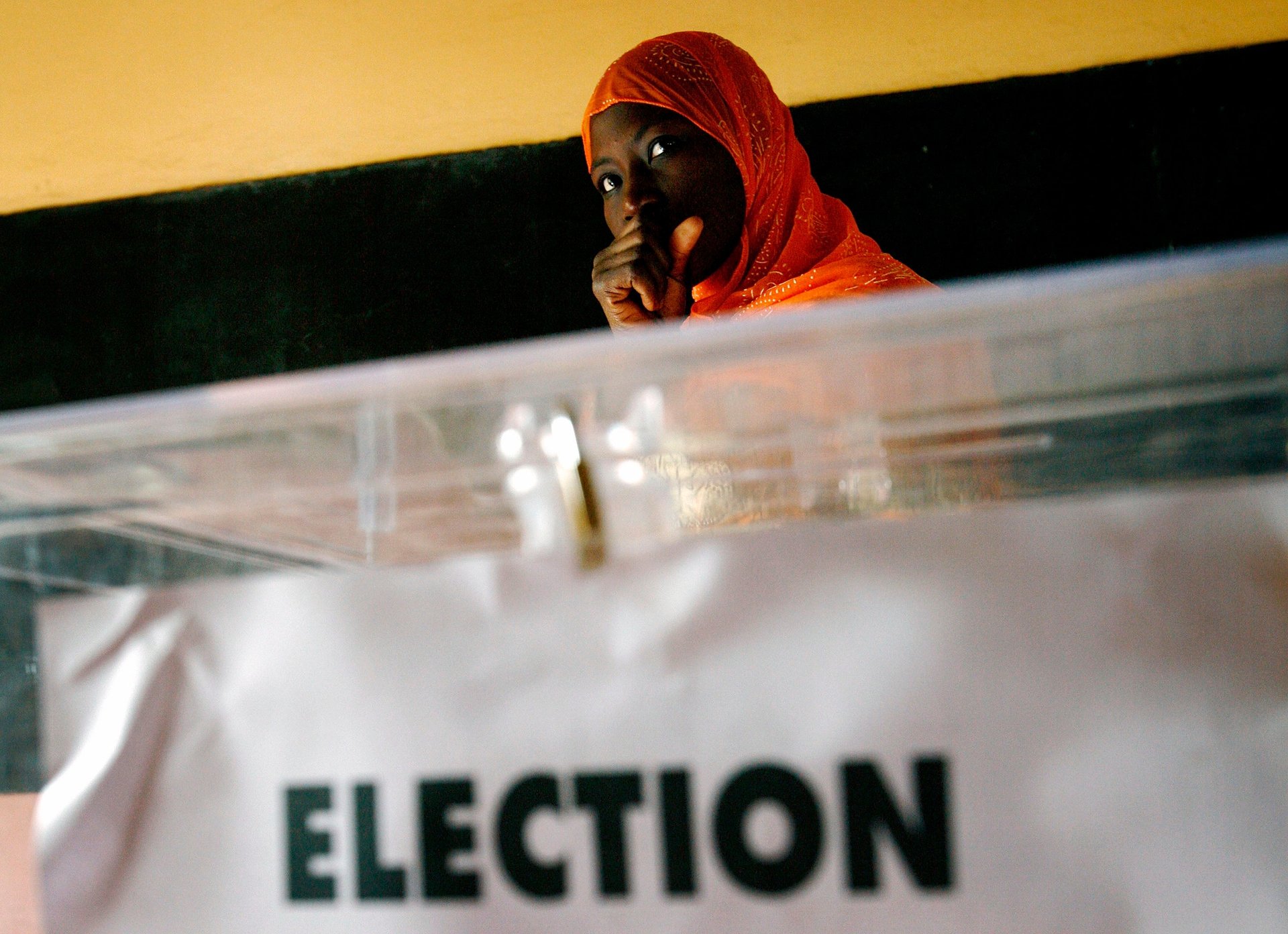Half of all Africans don’t trust their national electoral commissions
In African elections, discontent is the new frontrunner.


In African elections, discontent is the new frontrunner.
At a time when more than two dozen nations are holding elections in 2016 and 2017, only half the people in the continent say they trust their national electoral bodies, a new study shows. The survey shows that respondents trust their electoral commission somewhat (25%) and a lot (25%).
The results also showed an overall dismal view of electioneering: where opposition parties and candidates are prevented from campaigning, rampant bribery exists, and where voting doesn’t necessarily equate with electing leaders who are accountable or representative of people’s views.
The study, which collected opinions from 54,000 citizens in 36 countries, was conducted by the Pan-African research network Afrobarometer. The group conducted face-to-face interviews, in respondents’ languages, with between 1,200 and 2,400 people in each of the countries. The findings also showed that citizens drew “similar conclusions” about the quality of an election as much as expert observers deployed to watch these exercises.
“Nothing kindles democracy’s energies, anxieties, hopes and frustrations like an election,” the report’s authors said in their introduction. “The quality of an election can spell the difference between a cooking fire and an explosion.”
Bribery of voters was also considered a persistent problem in elections. Mali, Gabon, and Senegal were the countries where the most number of people said voters were bribed. Residents of urban areas were also more likely than rural residents to state that voters were often or always bribed.
Across the continent, there was also a widespread perception that media outlets “never” or only “sometimes” do a fair coverage of all candidates in a given election. Media bias was rampant among respondents in countries like Gabon, Madagascar, and Malawi, while Burundi, Niger, and Senegal said the media was doing a fair coverage.
Despite the grim prospects, growing civic awareness and transparency have aided in increasing trust in the commissions in some countries. The introduction and expanding use of technology and biometric registration in countries like Namibia have also secured a modest positive response towards electoral processes.